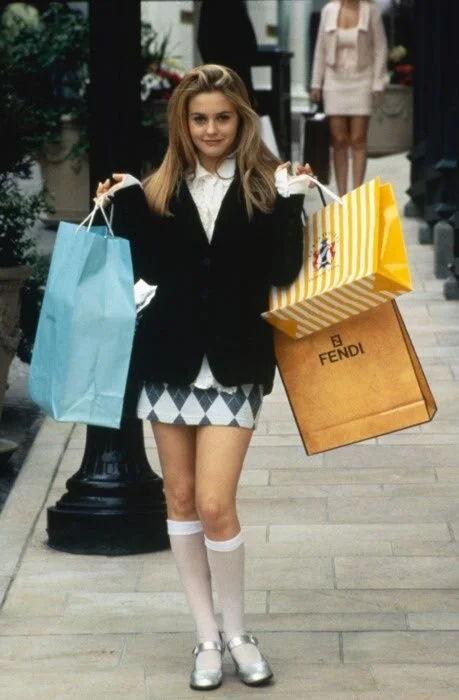There’s Nothing More Capitalist than Fashion
By Jayme Chandler
There has been a not-so-subtle shift within the fashion industry over the last few years. While fashion and entertainment have always been dominated by the Left, the backlash from the 2016 election has brought a whole new kind of left-leaning resistance into American culture. Once iconic fashion magazines and editorials are now riddled with progressive politics, and the same media moguls who preach “diversity” and “tolerance” wouldn’t dare publish a conservative thought. The most shocking development has to be the fashion industry’s recent embrace of socialism, which is a strange notion for an industry that promotes individualism and relies entirely on mass consumption and materialism.
I’ve noticed this phenomenon over the last few years, across all aspects of the fashion industry. While Vogue runs spreads worshipping Rep. Alexandria Ocasio-Cortez, Refinery29 advocates for young, feminist socialism, and Teen Vogue publishes puff pieces on Karl Marx. Models walk the runway clothed in political statements like “The Revolution has No Borders” at New York Fashion Week and prominent model and fashion designer, Emily Ratajkowski endorses Bernie Sanders while tweeting about Democratic Socialism. In the fashion industry, radicalism has become mainstream, Leftism is unchallenged, and hypocrisy is ignored. Despite what the industry refuses to recognize, there is nothing more capitalist than fashion.
American capitalism breeds materialism, and without materialism, there is no fashion. It is no coincidence that the rise of fashion coincided with the ascendance of the free-market. Sure, fashion has been around forever, but the ability of the masses to partake is very much tied to the rise of capitalist mass consumption. Fashion and its place in modern culture would be nothing nothing without the recognition and participation of the masses. Without industrialization, there can be no mass consumption, and when there is no mass consumption, fashion ceases to exist as a binding agent of culture and becomes a rich man or woman’s pursuit.
Many people know the story of Henry Ford, the man who built the assembly line and is considered by many to be the father of mass production. However, few know the story of Alfred Sloan, the father of mass consumption. Unlike Mr. Ford, Mr. Sloan didn’t invent a new way to manufacture cars, he developed a new way to sell them. The Left likes to render capitalism into a monolithic exercise in production when, in reality, capitalism is not only the art of producing but selling. Coincidentally, fashion is the selling arm of the broader garment industry. Without a perceivable difference between brands, what would be the point of even producing different garment design? The fashion industry even has seasonal and yearly shows to usher in new looks. The entire architecture of fashion revolves around selling people clothes they don’t realistically need. What’s the practical difference between a sweater from a fall collection in 2010 and a fall collection from 2019? Fashion is the heart of luxury consumption.
Barring the economic conditions necessary for fashion to exist, the very idea of fashion as an extension of a person’s individual identity is paradoxically capitalist. Capitalism, as a system, is based on the idea of the individual, while socialism is centered in the collective. Marxism, at its core, prioritizes the masses above the individual, the fashion industry derives success through channeling people’s innate desire to express their individuality. Additionally, whether we like it or not, fashion reinforces subliminal hierarchies within our society. They help us identify what group we’re a part of, and coddle our desire to express ourselves as individuals within a community. In the same way that friend groups dress similarly, so do social classes. A Marxist looks at fashion as a divider of our society by class, and to some extent, they’re correct. If private property is abandoned in the pursuit of equity, why should fashion, an equally obvious indicator of class, be kept? In short, it can’t be— there’s a reason most people can’t list a Soviet designer off the top of their head.
The fashion industry, just like the rest of corporate America, has no business frolicking in the fields of social justice. The same companies that advocate for social and economic justice in the US, exploit slave labor in Asia to manufacture their garments. This all begs the question: if fashion doesn’t actually want to change the system it openly markets itself as opposing, why do they openly advocate for socialism? The answer is simple: to sell— it’s called “woke capitalism,” and the Left literally buys right into it.
Our generation values the comforting words of social justice rather than the painful truth of action. We’d rather plaster “raised fists” on a shirt manufactured by some girl in a sweatshop in Bangladesh than pay $5 more for a shirt that’s made in America. The Conservateur has a deep respect for action that lives up to words. In a weird way, we have a certain respect for the hippies of Berkeley, and the commies of Portland— at least they usually put their money where their mouth is. But if there’s one group we won’t take a lecture from, especially on the morality of capitalism, it’s the fashion industry.
Photo via Refinery29


